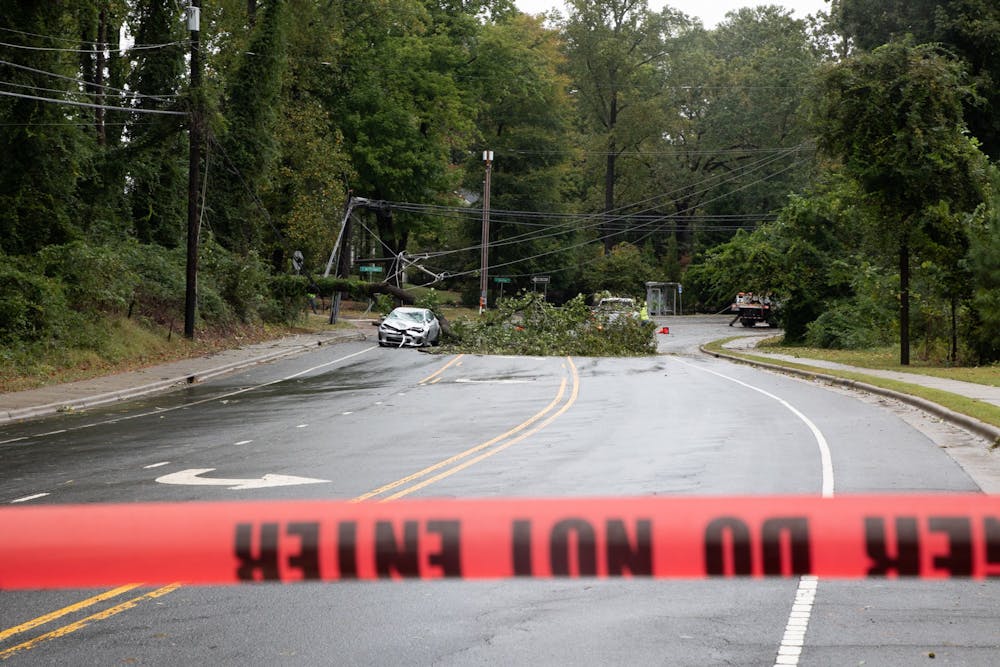After passing through South Carolina as a hurricane, Ian hit North Carolina as a tropical storm last weekend, causing power outages, downed trees, blocked roads and five deaths.
On Sept. 28, Gov. Roy Cooper declared a State of Emergency to “activate the state’s emergency operations plan," according to a press release.
“Even just declaring a State of Emergency has legal implications,” Kate Van Tol, legal fellow of emergency management for the UNC School of Government, said in an email.
Kathie Dello, state climatologist for North Carolina and director of the N.C. State Climate Office, said Ian was one of the biggest storms in the state's recent history.
“This will be like Florence or Matthew, which were two big recent events, but this will impact a little bit more of central North Carolina,” Dello said.
During the storm, wind speeds peaked at 30-32 miles per hour with gusts reaching 40-48 miles per hour at Raleigh-Durham International Airport on Friday evening.
At Horace Williams Airport in Chapel Hill, a total of 3.6 inches of rain fell as of 8 p.m. on Sept. 29. The highest amount recorded in the state over that period of time was 6.1 inches at Tidewater Research Station in Plymouth, N.C.
Around 4 p.m. Friday, a fallen tree brought down power lines on South Columbia Street, which caused a road closure between Mason Farm Road and Purefoy Road near the UNC Hospitals Ambulatory Care Center.
Around 3 p.m. Saturday, another road closure caused by similar circumstances occurred on Highway 54 between Merritt Mill Road and South Columbia Street.



